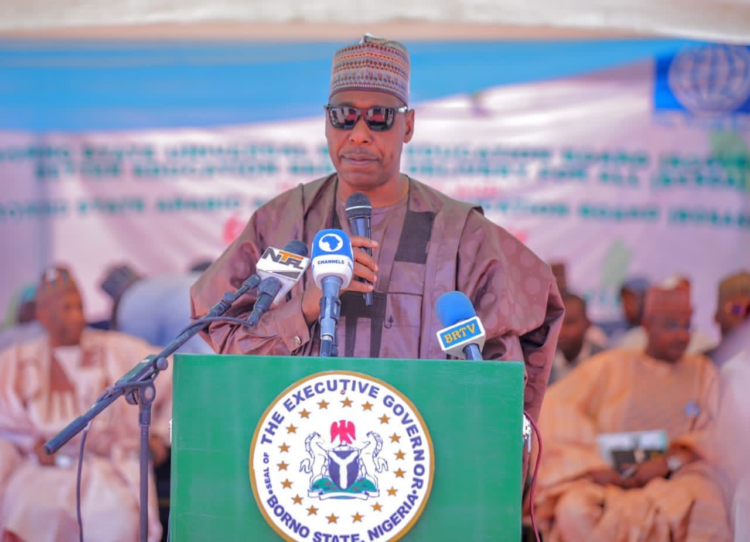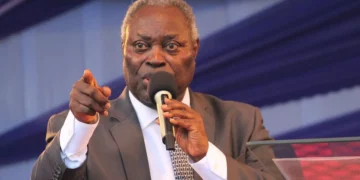In Borno, a state rich in traditional and Islamic history, of a people of scarred war survivors, there, everyone has a story that is almost too painful to recount— like the handbag, everyone carries on their shoulders the cruel and grueling memories of man’s inhumanity to man- sadly, not everyone will tell their bitter sad stories, because they aren’t alive to tell their experience.
A land ravaged by deadly insurgency anchored on dangerous extreme ideology, so catastrophic was the situation in the Kanem empire that lives were measured in brutal realities- a life in the morning may be a dead body in the evening. Bombs went up in sporadic pleasure as mangled bodies were counted in debris. Everywhere in Borno smelt death- nowhere was spared; from Baga to Bama, from Kondiga to Gwoza, Banki, Pulka, Damboa, Sabon Gari, Denshek, Mafarge, Dikwa, Nyana, Kana, Banki, Monguno, to Cross Kawa – death walked in destructive splendour. This was the situation the land was soaked in, after many years of countless deaths and choking destruction, the land bounced back in unimaginable reality.
How did Borno wriggle itself from the rains of insurgency, from a graveyard of sorts to today’s booming smell of purposeful governance? This is what this piece tends to address.
After almost a decade of insurgency that left about 38,000 people dead, many kidnapped and scarred for life, and fortunes destroyed, the people of Borno returned to destroyed homes, schools, hospitals, and markets. Kashim Shettima , now Nigeria’s Vice President handed over a recaptured Borno to his successor Babagana Umara Zulum after many strenuous efforts against the vicious enemies of the state. Massive relief efforts anchored on purposeful intent carried them through a rough recovery route. Many homes rebuilt and many Internally Displaced Persons rehabilitated. Borno state now site as a wall map of renewed peace, resettled people, and fascinating sights of constructions everywhere.
How did a state viciously ravaged by war bounced back to such enviable reckoning – such that, States not visited by war or any calamity stands in ruins and neglect? What formula is Zulum using or has used to put Borno and its people in such an amazing posture of pride?
In the aftermath of the devastating Boko Haram insurgency, the Borno State government has undertaken multifaceted efforts to uplift the lives of its people. Faced with the monumental task of rebuilding, the government has strategically focused on healthcare, education, infrastructure, and economic development to foster recovery and rejuvenation.
Borno State government has focused on rebuilding and revitalizing key sectors to enhance the well-being of its people after the Boko Haram insurgency. In healthcare, efforts have been made to reconstruct and equip healthcare facilities, providing essential services and support for those affected by the conflict. Educational initiatives aim to restore and enhance the education system, ensuring access to quality schooling for residents.
Infrastructure development has been a priority, with investments in rebuilding roads, bridges, and other critical structures to facilitate easier movement and access to basic services. Economic empowerment programs have been implemented to support local businesses, create job opportunities, and stimulate economic growth.
The government has also collaborated with humanitarian organizations and international partners to address the humanitarian challenges resulting from the conflict, providing aid and support to displaced populations. Continuous efforts are essential to ensure the sustained recovery and improvement of the overall quality of life for the people in Borno State.
One pivotal aspect of Borno State’s post-conflict strategy is the revitalization of the healthcare sector. Dilapidated healthcare facilities have been reconstructed and equipped to ensure the provision of essential services. This initiative not only addresses the immediate health needs of the population but also lays the foundation for a resilient healthcare system capable of withstanding future challenges.
Efforts undertaken by the Borno State government in the wake of the Boko Haram insurgency reflect a comprehensive and strategic approach to rebuilding lives and communities. Through targeted initiatives in healthcare, education, infrastructure.
Appreciable progress in governance recorded in Borno should be tabulated and collated into a blueprint for other states in Nigeria to emulate. How a people, deadly indoctrinated were de-radicalized must be studied and adopted by those webbed in the spiral of inter-ethnic violence. It is really intriguing to have a people who once submitted to the ideology of Boko Haram now fully custodians of the state ethos. How Babagana Zulum and his team achieved this must be told. The pace of transformation recorded in the Kanem empire of Borno must be accelerated and adopted by other states. This is the kind of peer mechanism that should be encouraged.











